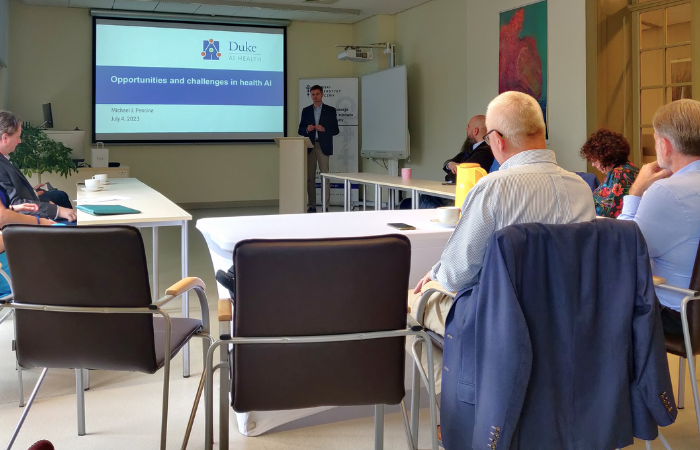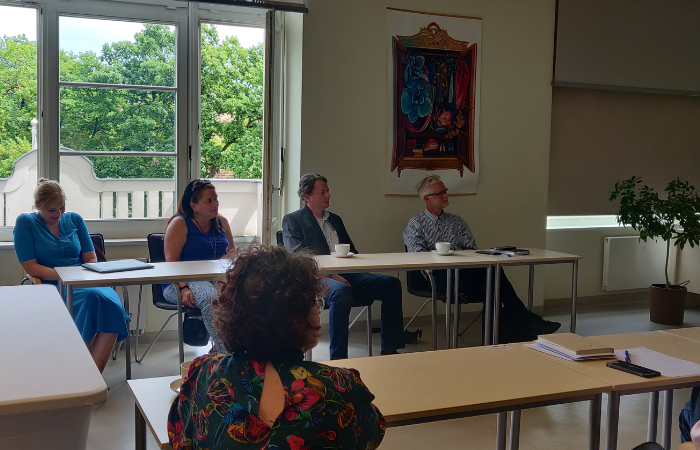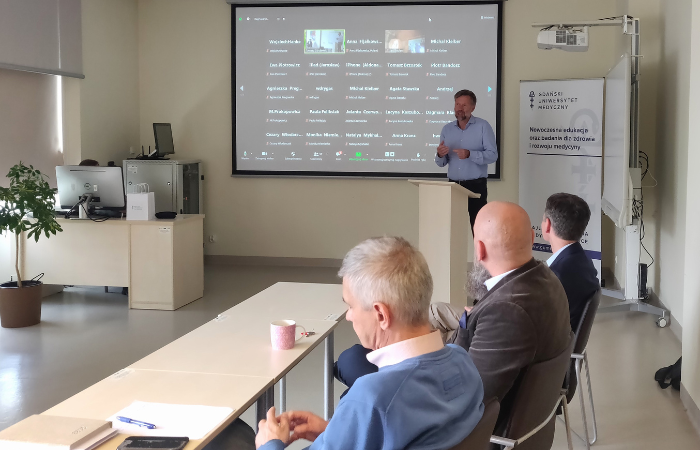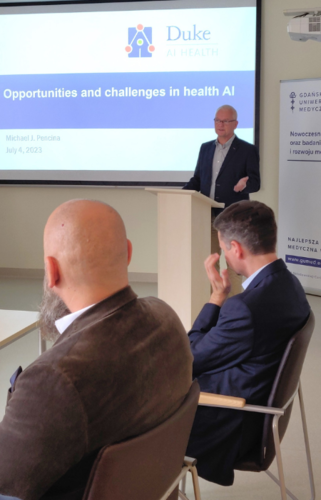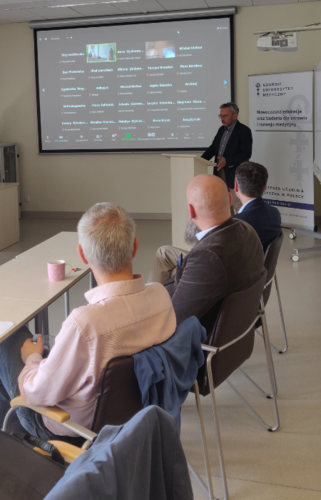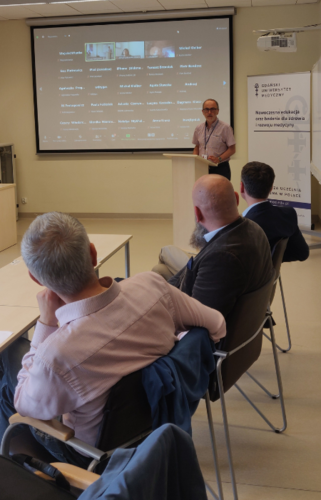Artificial intelligence in medicine: opportunities and threats
10.07.2023
The application of artificial intelligence in medicine was the topic of an open lecture given on 4 July by one of the leaders in this field in the US – Professor Michael Pencina – Dean of Data Science and Director of Artificial Intelligence Health, Duke University. Professor Pencina gave a lecture entitled Artificial Intelligence in Medicine – Opportunities and Threats. An American perspective at the Medical University of Gdansk at the special invitation of Professor Tomasz Zdrojewski, Head of the Division of Preventive Medicine & Education, member of IDUB PRA 2, and coordinator of Research Team I. Epidemiology and registries.
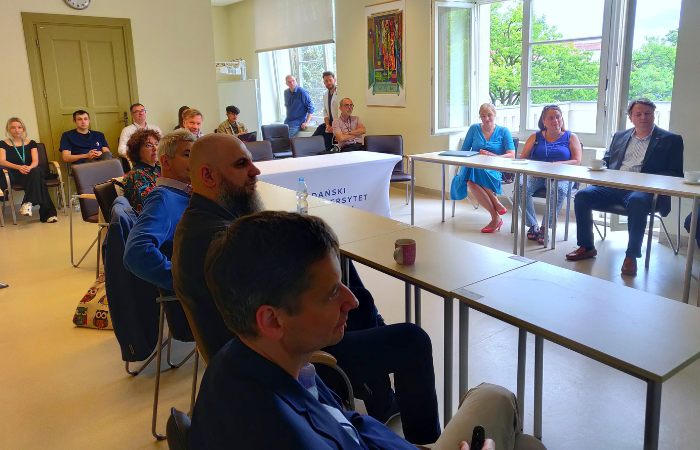
Professor Pencina presented the principles of artificial intelligence (AI) to the audience and talked about how it can be used in medicine, both in contact with patients, developing test results, and making diagnoses, but also in scientific research. This was followed by a discussion of programmes that use artificial intelligence in health centres in the United States. The expert also drew particular attention to the risks associated with the inappropriate use of tools equipped with the latest technology and discussed his recommendations and advice for doctors, and researchers using AI in their professional or scientific work.
In the second part of the meeting, Prof. Michał Kleiber, Chairman of the Forecasting Committee of the Polish Academy of Sciences and former President of the Polish Academy of Sciences, commented on the lecture. Then the open part of the discussion was joined by the scientists present in person, as well as guests connecting remotely, of whom there were nearly seventy. The following GUMed specialists spoke: Prof. Paweł Zagożdżon – Deputy Dean of the Faculty of Medicine, Head of the Division of Hygiene & Epidemiology with comments from the perspective of a psychiatrist, Prof. Krzysztof Narkiewicz – Head of the Department and Division ofHypertension & Diabetology and leader of PRA 2, who highlighted the risks associated with the use of AI in research, and Prof. Piotr Widłak – Director of the Clinical Research Support Centre Office, who highlighted the potential of AI in clinical research. The meeting concluded with a lively discussion.
photo: Katarzyna Sochacka/MUG
